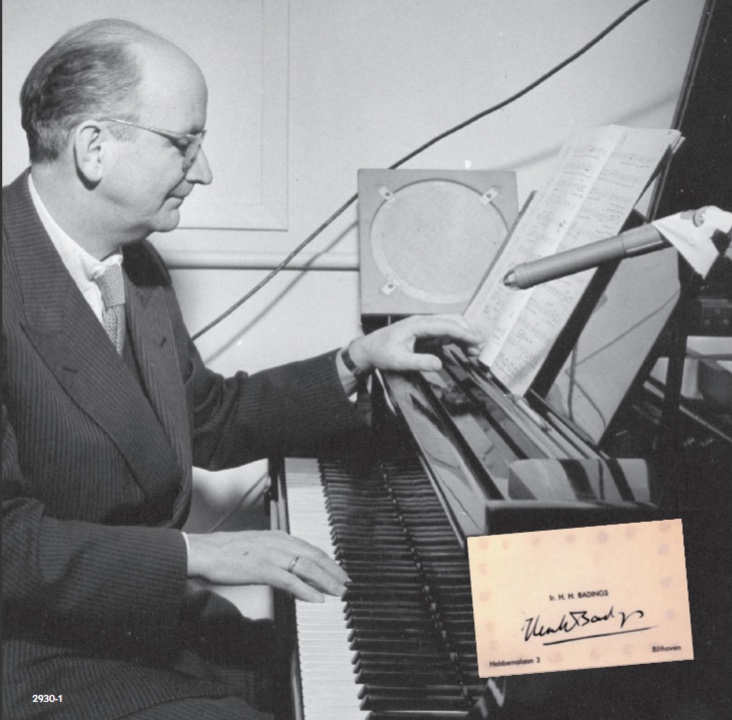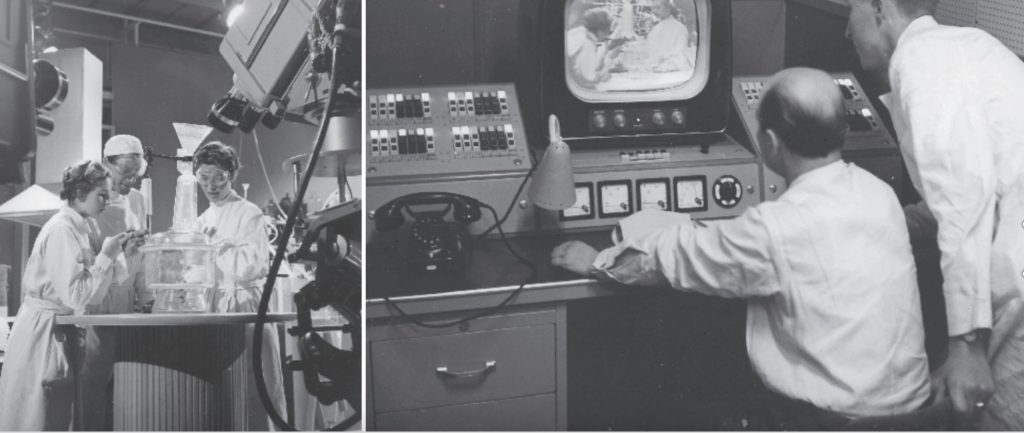By Daniel Hathaway
. Charnofsky’s playlist celebrates Juneteenth, and some other suggestions for marking the date
.`League of American Orchestras diversity report
. Almanac: Henk Badings’ electronic TV chamber opera (pictured)
HAPPENING TODAY:
In the Juneteenth broadcast of Not Your Grandmother’s Classical Music, Eric Charnofsky features music by African American Composers today from 2-4 pm: Adolphus Hailstork’s Symphony No. 1, Hailstork’s Spiritual Songs (choir), William Grant Still’s Africa (Symphonic Poem), George Walker’s Perimeters (clarinet and piano), Jeffrey Mumford’s the focus of blue light (violin and piano) & Samuel Barber’s Ballade (piano). Click here to listen to the internet feed, or tune in to 91.1 FM in the greater Cleveland area.
CELEBRATING JUNETEENTH
Since 2021, Juneteenth National Independence Day, a contraction of June 19th, has been an official federal holiday, marking the anniversary of the 1865 emancipation order that freed enslaved people in Texas some two and a half years after the Emancipation Proclamation was issued.
Here’s a selection of resources for marking Juneteenth.
San Francisco Classical Voice editor Michael Zwiebach recommends a list of streaming events to mark the day.
The Harvard Gazette asked faculty members to discuss the books they recommend for those who want to expand their understanding of systemic racism, white privilege, and the long legacies of slavery and white supremacy in American history. View the reading list here.
And on the same campus, the Radcliffe Institute, the anchor institution for Harvard and the Legacy of Slavery, asked members of the presidential committee guiding the initiative to reflect on the significance of Juneteenth. Read “Greeting Juneteenth with Remembrance, Resolve, and Hope” here.
In its Music by African American Composers archive, the Detroit Symphony includes two works by Oberlin grad Nkeiru Okoye from a March 7, 2020 concert led by Thomas Wilkins — the last DSO performance before the pandemic shutdown. Black Bottom, which received its premiere on that concert, “tells the stories of Detroit’s Black Bottom and Paradise Valley neighborhoods — hubs of African-American community, culture, and prosperity that flourished in the early 20th century.
When the city of Detroit razed the neighborhoods in the 1960s, thousands of people were displaced and decades of history was erased.” Voices Shouting Out (2002) was written in response to 9/11, but the composer describes it as “ a march to acknowledge those fighting on behalf of our safety, and yet a sparkling celebration of life for those who continue living.”
NEWS BRIEFS:
U.S. Orchestras Gradually Diversify but Are Slow to Hire Black Musicians
“American orchestras, which have come under scrutiny in recent years for their lack of diversity, have made some inroads in hiring more Asian and Latino players over the past decade. But according to a new study, they have barely moved the needle in addressing the persistent dearth of Black musicians.
“Over all, people of color now make up about 21 percent of orchestra players nationwide, according to a study by the League of American Orchestras, up from 14 percent in the 2013-14 season. But the study found that the share of Black players, who have long been underrepresented, barely shifted, rising to 2.4 percent from 1.8 percent.” Read the New York Times article here.
TODAY’S ALMANAC:

Badings, a prolific composer who lived from 1907 to 1987, deserves to be better known outside of The Netherlands. Born in Java, he studied mining technology in Delft while developing his skills as a composer, painter, sculptor and poet. painting, sculpting and writing poetry. Soon after he graduated,, his First Cello Concerto was performed at the Concertgebouw in Amsterdam, followed quickly by performances of other works.
In 1934 he was appointed to teach composition at the Rotterdam Conservatory and Amsterdam’s High School of Music, becoming director of the latter in 1938, and subsequently director of the Conservatory in The Hague.
In 1956 he founded the Philips electronic music studio in Eindhoven and later taught acoustics and computer science at the University of Utrecht.
Badings frequently used microtonal scales and harmonies. After 1951 he wrote a number of compositions for the Fokker 31-tone organ in Haarlem (pictured in the linked article) and in 1952 he created his first electronic compositions.



